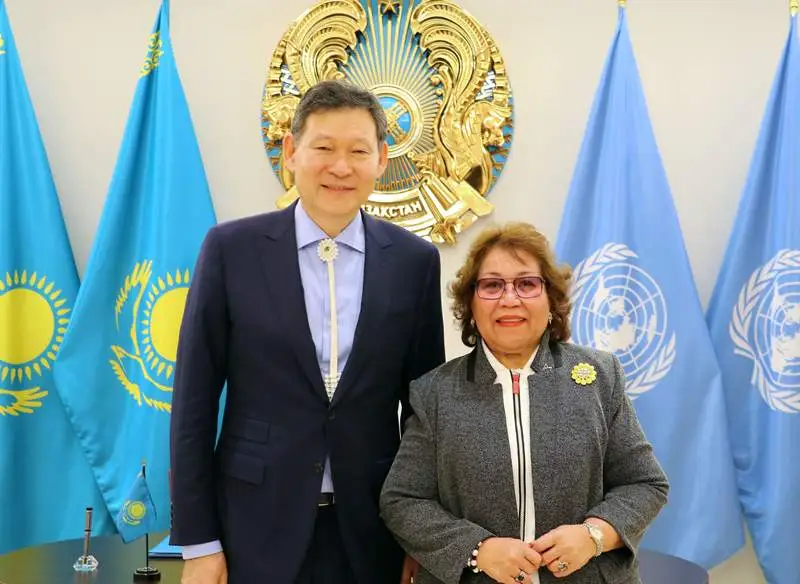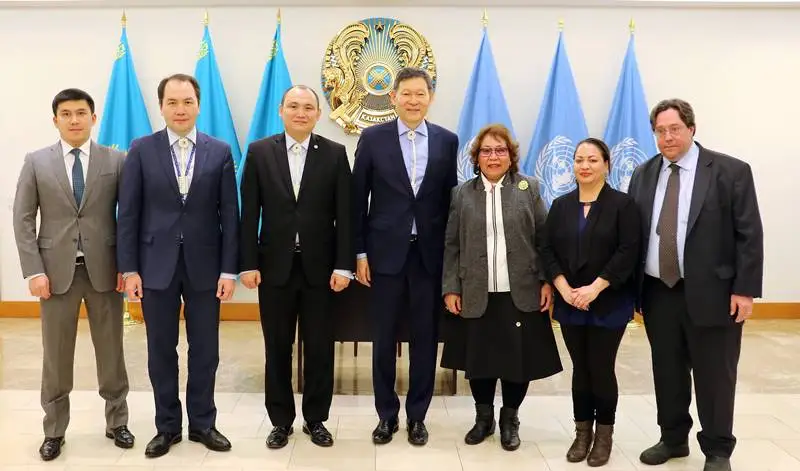Kazakhstan and Marshall Islands establish diplomatic relations

The Ambassador of Kazakhstan noted that the signing of the joint communiqué will contribute to the development of relations between the two countries in various fields in a bilateral format and within international organizations.
During the meeting, representatives of the two states discussed issues related to mutual support within the UN, including in the context of the Organization's reform. Particular attention was paid to the overall desire to promote the UN Sustainable Development Goals and the climate change challenge, Kazakh MFA press service informs.
Amatlain Elizabeth Kabua expressed her gratitude to Kazakhstan for working with small island states in global processes to combat climate change and switch to alternative energy sources, noting her personal participation in the National Day of the Marshall Islands in Astana during the International Specialized Exhibition EXPO 2017.
The Permanent Representative of the island also stated that the Marshall Islands support international peaceful initiatives of Kazakhstan and President Nursultan Nazarbayev in the area of non-proliferation of nuclear weapons and are ready for further cooperation in this area. The Marshall Islands have suffered from nuclear tests and fully share the initiative of Kazakhstan to ban them globally.
The Republic of the Marshall Islands is a Pacific state in Micronesia with a population of approximately 57,000. It gained independence in 1986 under the Compact of Free Association with the United States. From 1947 to 1962 nuclear tests were carried out on the territory of the country. In 1954, the United States conducted the first hydrogen bomb tests on the Bikini Atoll. The explosion almost completely destroyed the island.
The country's economy is based on subsistence agriculture, production of copra for export and financial aid from the United States. A large share of foreign exchange earnings come from tourism.
One of the country's main problems is global climate change, which is reflected in the rising sea level, coastal erosion, saltwater penetration into the soil, droughts and floods, as well as cyclones and storms.
